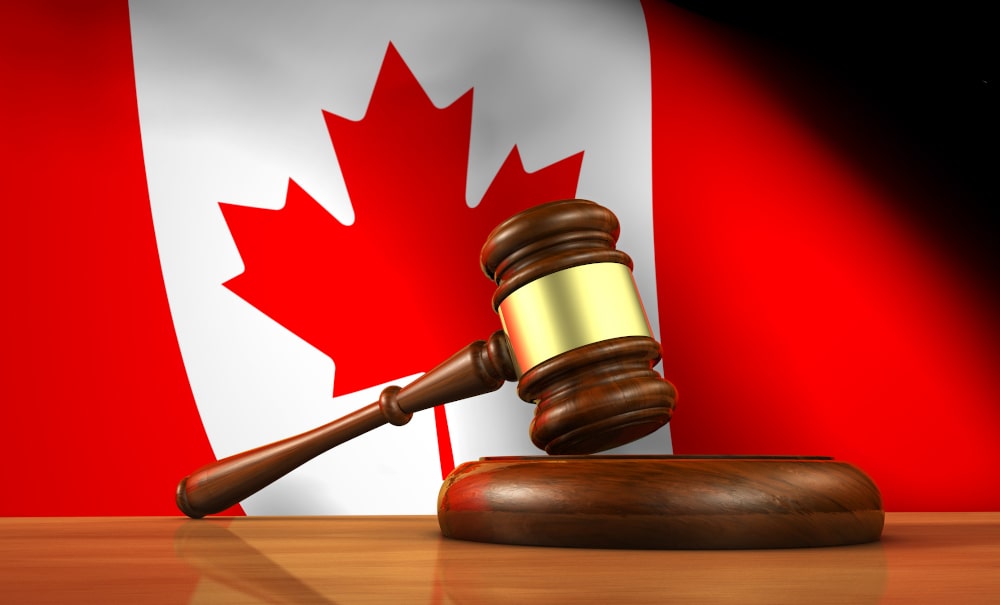
Key Takeaways
- Sexual interference involves any sexual touching of someone under the age of 16.
- The charge often accompanies sexual assault allegations to increase the Crown’s chance of conviction.
- Penalties can include mandatory jail time, sex offender registry listing, and DNA submission.
- Defences may include lack of intent, mistake of age, or violations of Charter rights.
- A strong criminal defence lawyer is crucial to navigating these complex charges and minimizing long-term consequences.
Table of Contents
- What Is Sexual Interference in Canadian Law?
- Sexual Interference vs. Sexual Assault
- Prevalence of Sexual Interference in Canada and Ontario
- Sexual Interference Under the Canadian Criminal Code
- Related Offences Under the Criminal Code
- How Common Is Sexual Interference in Canada and Ontario?
- What Happens After a Sexual Interference Charge?
- The Importance of Pre-Trial Steps
- Consequences of a Conviction
- Common Defences Against Sexual Interference Charges
- Why Legal Representation Is Crucial
“Sexual interference charges carry significant stigma and consequences. If you’ve been accused, don’t wait—contact a defence lawyer immediately. Early legal intervention can make a dramatic difference.”
— Joel Prajs, Criminal Defence Lawyer at Vilkhov Law
What Is Sexual Interference in Canadian Law?
Sexual assault is frequently reported on in the Toronto news – however, have you noticed that some sexual assault arrests are also combined with charges of sexual “interference?”
For example, a Toronto man was charged with two counts of the offence last month in conjunction with two sexual assaults.
Sexual interference refers to any physical contact with a person under the age of consent for sexual purposes. The offence is often combined with sexual assault charges when the alleged victim is underage to enhance the Crown’s ability to secure a conviction.
Sexual interference, under Section 151 of the Criminal Code of Canada, is defined as:
“Every person who, for a sexual purpose, touches, directly or indirectly, with a part of the body or with an object, any part of the body of a person under the age of 16 years.”
This charge can be prosecuted as either an indictable offence or a summary conviction, each with its penalties.
| Charge Type | Minimum Sentence | Maximum Sentence |
|---|---|---|
| Indictable Offence | 1 year in prison | 14 years in prison |
| Summary Conviction | 90 days in jail | 2 years less a day in jail |
Note: These penalties are mandatory and cannot be waived by the court.
Sexual Interference vs. Sexual Assault
The two charges often go hand-in-hand, especially if the alleged victim is under 16. While sexual assault refers to any non-consensual sexual act regardless of age, sexual interference focuses specifically on acts involving individuals under the age of consent.
This dual-charge strategy enhances the Crown’s ability to secure a conviction, either through separate or combined evidence.
Why Are These Charges Often Laid Together?
When the alleged victim is under 16, the Crown often lays both charges simultaneously:
| Charge | Focus Area | Consent Consideration | Age-Specific? |
|---|---|---|---|
| Sexual Assault | Any non-consensual sexual act | Yes, central to the charge | No |
| Sexual Interference | Sexual acts involving minors under 16 | Consent is not a defence | Yes — under 16 |
This dual-charge strategy gives the Crown flexibility:
- If consent becomes a legal argument, sexual interference still applies (since consent from a child is not valid).
- If the evidence doesn’t meet the burden for sexual assault, the Crown might still secure a conviction for sexual interference.
- In some cases, both charges lead to a single conviction, with sentencing reflecting the most serious offence.
Prevalence of Sexual Interference in Canada and Ontario
According to the latest “Incident-based crime statistics” from Statistics Canada, police in 2022 investigated 8,457 reports of sexual interference and charged 4,368 people with the offence. Police deemed 7.5% of reported incidents — 686 — unfounded and cleared another 7.5% — 688 — due to other reasons. Of those charged, 895 were youths under the age of 18.
In Ontario, police investigated 1,922 reports of sexual interference in 2022 and arrested 1,165 persons for the crime. Police only deemed 46 — 2.34% — of the reported incidents unfounded and cleared another 126 without laying charges. Of those charged, 156 were listed as youths under the age of 18.
Sexual Interference Under the Canadian Criminal Code
Section 151 of Canada’s Criminal Code describes the crime of sexual interference as:
“Every person, who for a sexual purpose, touches, directly or indirectly, with a part of the body or with an object, any part of the body of a person under the age of 16 years.”
If convicted of the charges as an indictable offence, the minimum punishment is a one-year prison sentence, while the maximum is 14 years imprisonment. When charged as a summary conviction offence, the minimum sentence is 90 days in jail, while the maximum is two years less than a day imprisonment.
Related Offences Under the Criminal Code
In addition to Section 151, the Criminal Code outlines related offences:
| Section | Offence | Definition |
|---|---|---|
| 152 | Invitation to Sexual Touching | Inviting a minor under 16 to touch another person for sexual purposes. |
| 153 | Sexual Exploitation | Applies when the accused is in a position of authority over a 16–17-year-old. |
These offences carry similar sentencing guidelines and may be laid in combination with sexual interference charges.
How Common Is Sexual Interference in Canada and Ontario?
National Statistics (2022)
According to Statistics Canada, in 2022:
- 8,457 reports of sexual interference were investigated.
- 4,368 people were charged.
- 895 of those charged were youths under 18.
- Approximately 15% of reported cases were deemed unfounded or cleared without charges.
Ontario-Specific Data (2022)
| Statistic | Count |
|---|---|
| Reports investigated | 1,922 |
| Persons charged | 1,165 |
| Youths (under 18) charged | 156 |
| Cases deemed unfounded | 46 (2.34%) |
| Cleared without charges | 126 |
What Happens After a Sexual Interference Charge?
Police Response & Bail Options
Depending on the circumstances, police may:
- Release you on an undertaking, with conditions.
- Hold you in custody for a bail hearing.
Common Bail Conditions
- No contact with the alleged victim
- Travel restrictions
- House arrest
- Ankle bracelet monitoring
- Abstaining from drugs/alcohol
- Curfew
- Mandatory counselling
- Surety (monetary guarantee by family/friend)
The Importance of Pre-Trial Steps
Many sexual interference cases are resolved before trial, making pre-trial strategy essential. Key components include:
Disclosure
The Crown must provide all evidence to the defence. A skilled lawyer will:
- Ensure full disclosure.
- Identify weak points in the Crown’s case.
- Develop a defence strategy accordingly.
Resolution Meetings
Lawyers from both sides evaluate the evidence and may negotiate resolutions to avoid trial.
Judicial Pre-Trial
A judge participates in discussions to clarify legal issues and potentially facilitate resolution.
Preliminary Hearing
Available if the charge is indictable. It determines whether there is enough evidence for trial.
Consequences of a Conviction
Additional Penalties
If convicted, the consequences extend beyond jail time:
| Additional Penalties | Description |
|---|---|
| Sex Offender Registry | Mandatory registration and regular updates required. |
| DNA Submission | Sample added to national DNA databank. |
| Firearms/Weapons Ban | Long-term restrictions. |
| Location Restrictions | Cannot be near children or certain public places. |
Possible Favourable Outcomes
An experienced criminal defence lawyer may help you avoid a full conviction by negotiating:
- Withdrawal of charges
- Stay of proceedings
- Conditional or absolute discharge
- Reduction to a lesser offence
Common Defences Against Sexual Interference Charges
Every case is unique, but common legal defences include:
- No touching occurred.
- The touching was accidental or unintentional.
- Touching was non-sexual.
- Mistake of age, though limited by law.
- Charter violations (e.g., unlawful search or detention).
Your defence lawyer must demonstrate that there is reasonable doubt regarding your intent or the act itself.
Why Legal Representation Is Crucial
Sexual interference charges carry a lifelong stigma and mandatory penalties. Whether you’re facing a first-time charge or a complex case involving multiple allegations, early representation is vital.
At Vilkhov Law, we are committed to providing aggressive, strategic defence to protect your rights and future.







